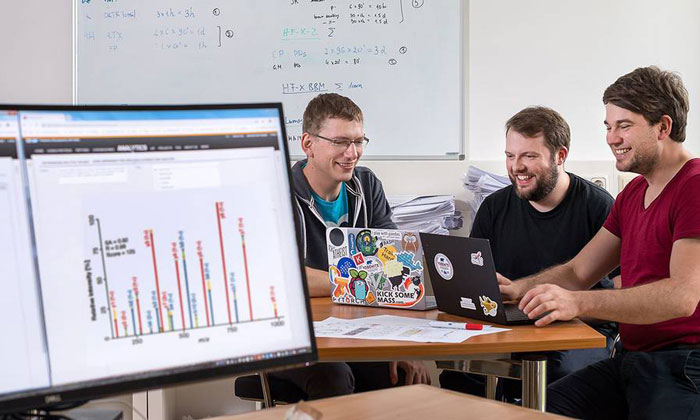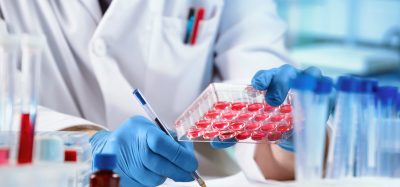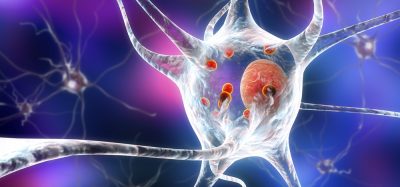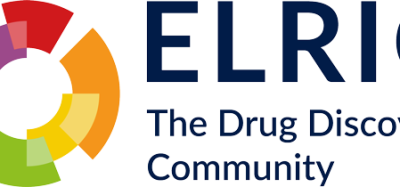Proteomics research advanced by use of AI
Posted: 30 May 2019 | Drug Target Review | No comments yet
Researchers succeed in using machine learning to make the mass analysis of proteins faster and almost error-free.


The authors Mathias Wilhelm, Tobias Schmidt and Siegfried Gessulat (credit: A. Eckert /TUM).
The researchers (from the Technical University of Munich and led by bioinformatics scientist Mathias Wilhelm and biochemist Bernhard Küster, Professor of Proteomics and Bioanalytics at the Technical University of Munich) successfully used proteomic data to train a neural network to recognise proteins more quickly and with almost no errors.
Currently, certain proteins are not recognised or are recognised incorrectly with mass spectrometers due to them not measuring proteins directly, which is “a serious problem,” said Bernhard Küster. The neural network developed by the TUM team uses all the information of the spectra for the process of identification. “We miss fewer proteins and make 100 times fewer mistakes,” he revealed.
The AI software (named ‘Prosit’) is “applicable to all organisms in the world, even if their proteomes have never been examined before,” explained Mathias Wilhelm. “This enables research which was previously inconceivable.”
Biomarkers aren’t just supporting drug discovery – they’re driving it
FREE market report
From smarter trials to faster insights, this report unpacks the science, strategy and real-world impact behind the next generation of precision therapies.
What you’ll unlock:
- How biomarkers are guiding dose selection and early efficacy decisions in complex trials
- Why multi-omics, liquid biopsy and digital tools are redefining the discovery process
- What makes lab data regulatory-ready and why alignment matters from day one
Explore how biomarkers are shaping early drug development
Access the full report – it’s free!
With the help of 100 million mass spectra, the algorithm has been so extensively trained that it can be used for all common mass spectrometers without any additional training. “Our system is the global leader in this field,” added Küster.
With Prosit, it will be possible to develop even more powerful instruments like this in the future. Researchers and physicians will also be better and faster able to search for biomarkers in patients’ blood or urine, or monitor therapies for their effectiveness.
The researchers also have high hopes for fundamental research: “The method can be used to track down new regulatory mechanisms in cells,” said Küster. “We hope to gain a considerable amount of knowledge here, which, in the medium and long term, will be reflected in the treatment of diseases suffered by humans, animals and plants.”
This research was published in Nature Methods.
Related topics
Mass Spectrometry, Protein, Research & Development
Related organisations
Technical University of Munich
Related people
Bernhard Küster, Mathias Wilhelm








